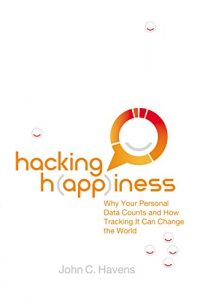In Hacking Happiness, futurist and contributing Mashable writer John C. Havens introduces you to your “quantified self”—your digital identity represented by gigabytes of data produced from tracking your activities on your smartphone and computer. Harvested by megacorporations such as Google, Facebook, and Amazon, Havens argues that companies gather this data because of its immense economic value, encouraging a culture of “sharing” as they hoard the information based on our lives for private monetary gain.
But there's an alternative to this digital dystopia. Emerging technologies will help us reclaim this valuable data for ourselves, so we can directly profit from the insights linked to our quantified selves. At the same time, sensors in smartphones and wearable devices will help us track our emotions to improve our well-being based on the science of positive psychology. Havens proposes that these trends will lead to new economic policies that redefine the meaning of “wealth,” allowing governments to create policy focused on purpose rather than productivity.
An issues book highlighting the benefits of an examined life in the digital world, this timely work takes the trepidation out of the technological renaissance and illustrates how the fruits of the Information Age can improve our lives for a happier humanity.
But there's an alternative to this digital dystopia. Emerging technologies will help us reclaim this valuable data for ourselves, so we can directly profit from the insights linked to our quantified selves. At the same time, sensors in smartphones and wearable devices will help us track our emotions to improve our well-being based on the science of positive psychology. Havens proposes that these trends will lead to new economic policies that redefine the meaning of “wealth,” allowing governments to create policy focused on purpose rather than productivity.
An issues book highlighting the benefits of an examined life in the digital world, this timely work takes the trepidation out of the technological renaissance and illustrates how the fruits of the Information Age can improve our lives for a happier humanity.






